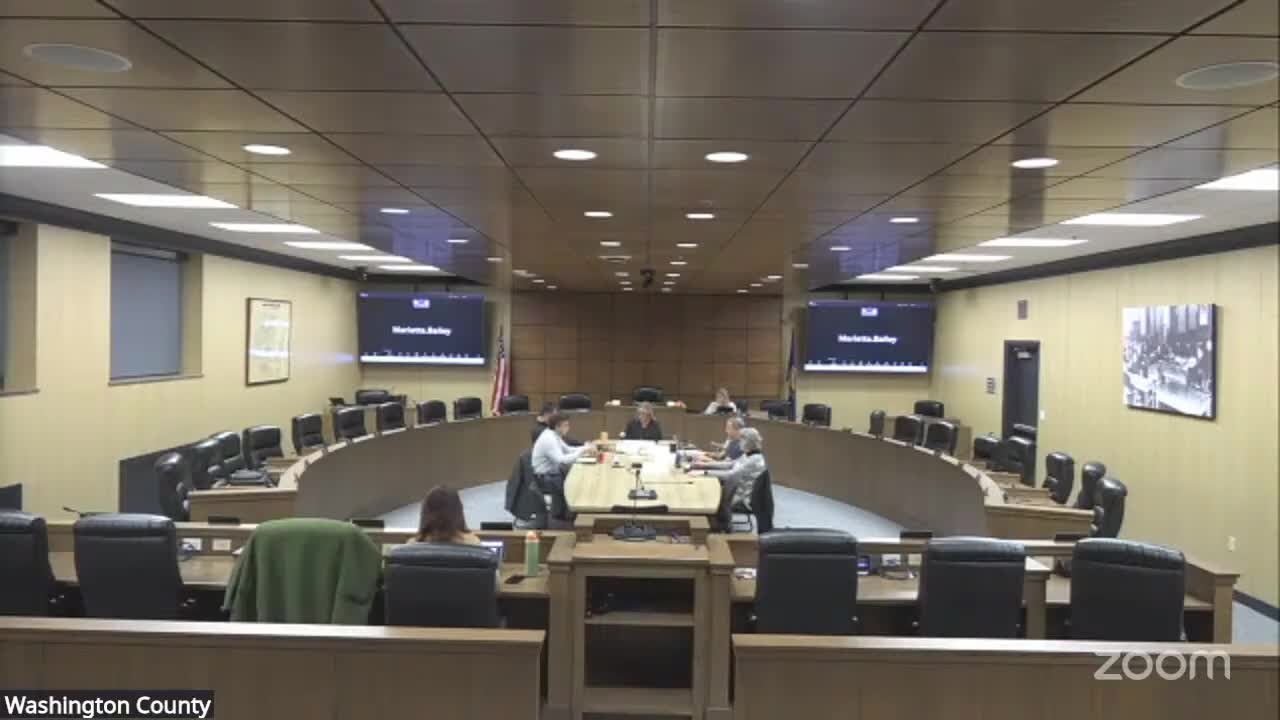Washington County officials warn SNAP administrative cut and Nov. EBT pause could strain local services

Summary
Julie, a county economic-support presenter, told the Washington County Health & Human Services Committee on Oct. 29 that a federal change tied to HR1 (referred to in materials as “OBBBA”) will cut the federal administrative match for SNAP (FoodShare) from 50% to 25% effective Oct. 1, 2026, and that the state Department of Health Services is requesting $69,000,000 from the legislature to offset the change.
Julie, a county economic-support presenter, told the Washington County Health & Human Services Committee on Oct. 29 that a federal change tied to HR1 (referred to in materials as “OBBBA”) will cut the federal administrative match for SNAP (FoodShare) from 50% to 25% effective Oct. 1, 2026, and that the state Department of Health Services is requesting $69,000,000 from the legislature to offset the change.
Why it matters: County staff said it is not yet known whether the state will fully absorb that cost or pass some of it to counties. County staff estimated Washington County could face about a $104,000 operational shortfall in economic-support spending if the county must cover the reduced federal match. The committee was told staff will monitor legislative action and return with specific budget proposals close to the affected fiscal year timeline.
Details from the briefing: County staff described two related cost drivers. First, the change in the federal administrative-match percentage would increase the state’s share of SNAP administrative costs. Second, the federal proposal links state liability for cash benefits to states’ SNAP error rates; if a state’s error rate exceeds federal benchmarks, the state may owe a share of cash assistance. County staff said the federal benchmark is roughly 6%; Washington County and its Grand Lakes Consortium are reporting an error rate in the ~4.49–4.9% range, below that 6% threshold.
The county is using a PCR tool and data exchanges to find common errors before benefits are confirmed; staff said they currently spot-check roughly 25 cases per week with the PCR process and estimated a PCR review takes about 10–20 minutes per case. Staff cautioned that expanding PCR coverage to every case would be labor intensive unless additional staffing or automation is introduced.
Questions from supervisors: Supervisor Bossert asked whether undocumented immigrants are eligible for SNAP; county staff replied that ‘‘you are not eligible for SNAP benefits if you are an illegal immigrant or an illegal person.’’ Supervisors pressed staff on how worker error and recipient error are defined, how overpayments and recoupments affect error-rate calculations, and whether recovered overpayments alter the federally measured error rate; staff described that the state pulls sampled cases and that errors identified in the quality review period are counted in the error rate.
Short-term, separate concern — EBT benefits and a federal government shutdown: Committee members were also told the federal government shutdown will prevent new FoodShare benefits from loading Nov. 1 while the shutdown continues. County staff said households with October balances on their Quest/EBT cards will be able to spend remaining funds, but November benefits will not load until the federal funding issue is resolved. The county reported 3,745 affected households representing 7,086 people, including about 2,700 children and just under 2,000 people who are elderly, blind or disabled. Staff said they are coordinating outreach, community food drives and donations through United Way and local food pantries to help mitigate short-term need.
Next steps: Staff said they plan to watch legislative developments and return to the committee in mid‑summer next year with options to close any budget gap, including internal operational adjustments or reallocations within the human-services budget.

